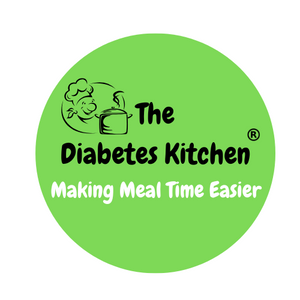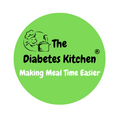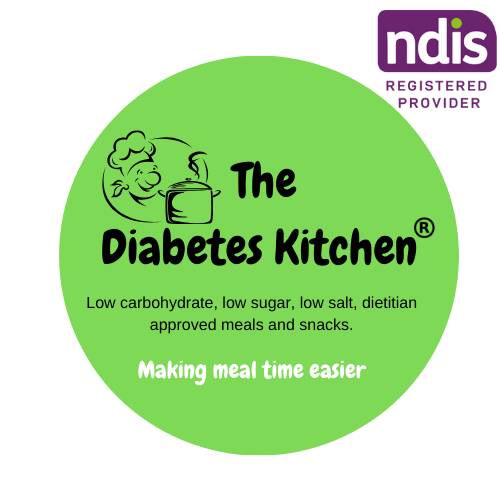Fancy something a little sweet and tasty? This week we're sharing one of our favourite blogs from Nikki at t1FriendlyFoodie. Date Cake!
Ingredients
- 50 g Lupin flour
- 150 g Almond meal
- 1/2 tsp Bicarbonate of soda
- 2 tsp Baking powder
- 1/2 tsp Mixed spice
- 50 g Pecan nuts
- 100 g Dates
- 2 Eggs (Large 800g)
- 1 tsp 100% Pure unsweetened vanilla extract
- 1 cup Hot water (used to soak the dates)
- 3/4 cup Full cream milk
- 1/8 tsp 100% pure Stevia extract powder
- 85 g Light cream cheese
For the vanilla batter: 100g almond meal, 1 tsp baking powder, 1-8 tsp 100% pure Stevia extract powder, 1 egg, 1/4 cup full cream milk, 1/2 tsp 100% pure unsweetened vanilla extract.
For the icing: 50g dates, 85g light cream cheese, 1/8 cup hot water, 1/4 tsp mixed spice.
Instructions
-
Preheat your oven to 180 degrees Celsius. Line a small square baking tin (15cm x 15cm) with baking paper (bottom and sides).
-
Remove seeds from dates (if they aren't already de-seeded). Place dates into a small bowl and soak in boiling hot water (enough to cover them) for approximately 15-20 minutes.
-
To make the date batter, add 100g of the dates (approximately five large dates), from the bowl into a blender or food processor. Add 3/4 cup of milk and blend until the dates are smooth (you can leave some chunks in).
-
Add the blended dates and milk to a mixing bowl. Add the other wet ingredients including egg and vanilla and mix well with a spoon.
-
In a separate bowl, add all the dry ingredients including the lupin flour and almond meal, Stevia, bicarbonate of soda, banking powder and mixed spice and stir together til well combined.
-
Roughly crush the pecan nuts and add them to the dry ingredients and mix well.
-
Add the wet ingredients to the dry and mix together until well combined. Leave aside while you prepare the vanilla batter.
-
To make the vanilla batter, combine the almond meal, baking powder, Stevia, egg vanilla and milk together in a bowl and mix until well combined.
-
To assemble the cake, pour half of the date batter into the lined tin. Then on top of this, pour all of the vanilla batter. Lastly, pour the remaining date batter on top and smooth out with a spatula.
-
Bake cake in the oven at 180 degrees Celsius for approximately 55 mins or until cooked (pierce the centre with a wooden skewer and it should come out clean). Once the cake is cooked, remove from the oven and leave to cool.
-
To make the icing, remove the remaining soaked dates from the hot water and place in a small blender or food processor along with 1/8 cup of the water in which they were soaking (you can use the back of a fork to mash the dates if you prefer). Blend until the dates are smooth.
-
Add the pureed dates to a bowl, along with the cream cheese and mixed spice and stir until all ingredients are well combined.
-
Remove the cake from the cake tin and spoon over the icing on top of the cake, using the back of a knife or spatula. Smooth over so the cake is evenly covered.
-
Cut the cake into six even rectangular slices and serve.

Dates are a sweet and nutritious fruit that come from the date palm tree. They are often enjoyed as a natural snack or used in various culinary preparations. Here are some benefits of consuming dates:
-
Rich in Nutrients: Dates are a good source of essential nutrients, including dietary fiber, vitamins (such as vitamin B6 and vitamin K), minerals (such as potassium, magnesium, and copper), and antioxidants. These nutrients contribute to overall health and well-being.
-
Energy Boost: Dates are naturally high in carbohydrates, including natural sugars like glucose, fructose, and sucrose. This makes them a quick and easily digestible source of energy, making them an ideal snack for an energy boost.
-
Digestive Health: The dietary fiber in dates can support digestive health by promoting regular bowel movements and preventing constipation. Fiber also helps maintain a healthy gut microbiome.
-
Heart Health: Dates are rich in potassium, which plays a role in regulating blood pressure and maintaining fluid balance. Including potassium-rich foods in your diet can help support heart health.
-
Bone Health: Dates contain minerals like magnesium, copper, and selenium, which are important for bone health. These minerals contribute to maintaining bone density and strength.
-
Antioxidant Protection: Dates contain various antioxidants, including flavonoids, carotenoids, and phenolic acid. Antioxidants help neutralize harmful free radicals in the body, reducing oxidative stress and lowering the risk of chronic diseases.
-
Blood Sugar Regulation: While dates are naturally sweet, they also have a low glycemic index (GI), meaning they have a slower impact on blood sugar levels compared to some other high-sugar foods. However, portion control is important for individuals with diabetes.
-
Natural Sweetener: Dates can be used as a natural alternative sweetener in recipes. They can be blended to make date paste, which can be used in baking, smoothies, and various dishes.
-
Weight Management: Dates can be a satisfying and nutritious snack option, helping to curb cravings and keep you full between meals.
-
Iron Content: Dates are a source of dietary iron, which is essential for carrying oxygen in the blood and preventing iron-deficiency anemia.
-
Pregnancy Nutrition: Dates are often recommended during pregnancy as they contain nutrients like folate, iron, and fiber that can support maternal and fetal health.
It's important to consume dates in moderation due to their natural sugar content. While dates offer numerous health benefits, they are calorie-dense, so portion control is key, especially for those aiming to manage their weight or blood sugar levels. Always consult with a healthcare professional or registered dietitian if you have specific dietary considerations or health goals.
-






